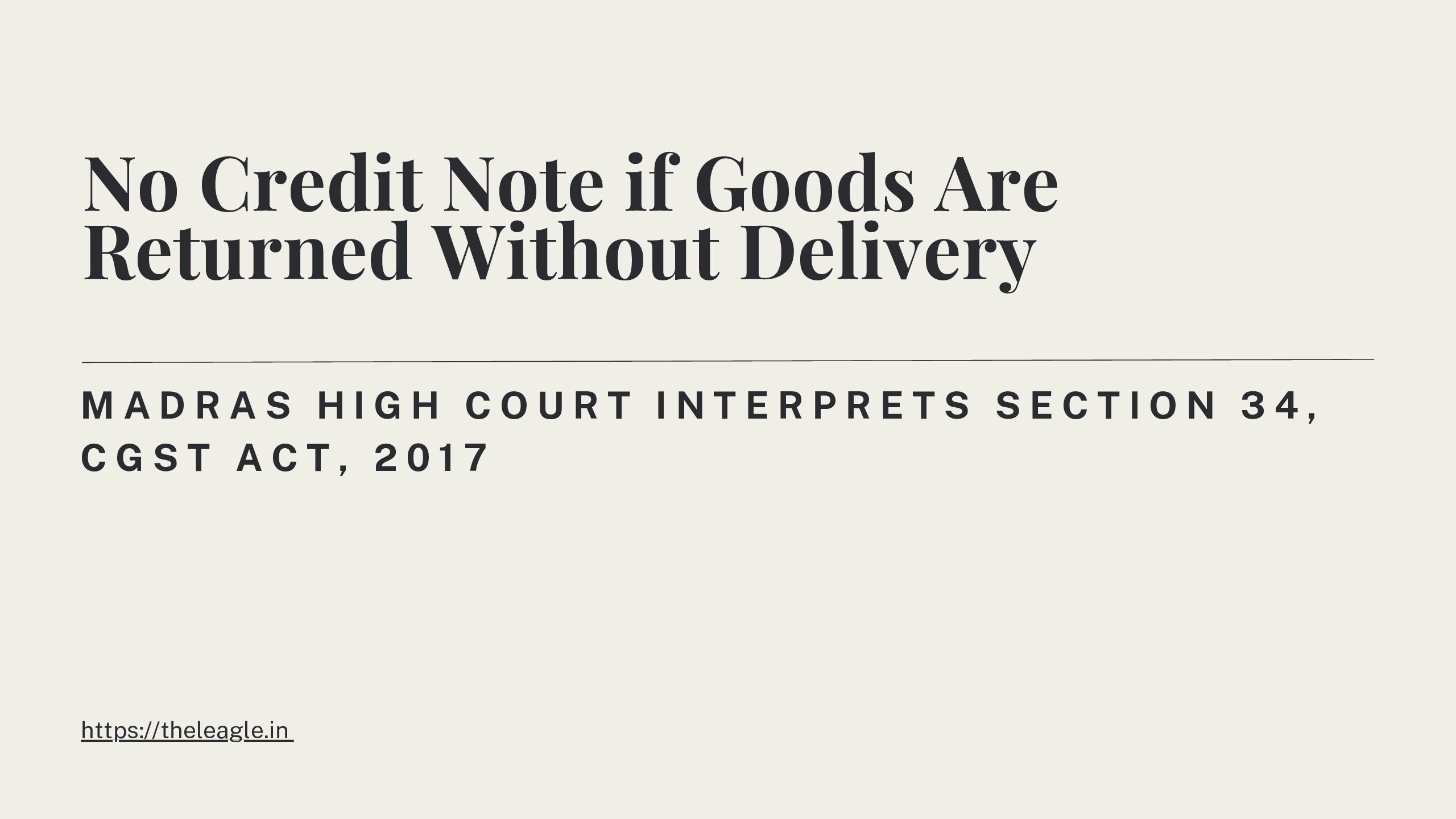In a recent judgment[1], the Madras High Court held that there is no requirement to issue a credit note when the goods were returned to the seller without delivery to the buyer. The High Court held that the credit note was necessary for adjustment of tax liabilities, and the said requirement did not arise when the goods were not delivered to the buyer in the first place.
Facts and Arguments
The petitioner, based in Chennai, had transported a consignment of solar power generating systems/solar panels of different descriptions to the buyer in Tiruppur. The goods were transported accompanied by different invoices and accompanying e-way bills. When the goods were being transported there was a heavy downpour, the solar panels got wet and the buyer refused to take delivery of the goods. The petitioner generated new e-way bills and transported goods back to the factory in Chennai, but on the way the goods were intercepted.
The intercepting officers claimed that it was necessary for the goods to be accompanied with credit notes, and in the absence of the same presumed an intent to evade tax. accordingly, proceedings were initiated against the petitioner under Section 129, CGST Act, 2017. The petitioner paid the penalty under protest, but later challenged the initiation of proceedings under Section 129 and officer’s view that a credit note was necessary even though the buyer had not taken delivery of the goods. As per the petitioner, issuance of credit note is only necessary if the goods were delivered to the buyer in the first place.
Madras High Court Decides
The Madras High Court examined Section 34 and observed that:
Thus, the goods which are being returned need not necessarily accompany a Credit Note. The Credit Note or Debit Note as the case may be are intended only for adjustment of tax liabilities on account of return of the goods and where tax charged in that tax invoice is found to exceed the taxable value or tax payable in respect of such supply. (para 23)
The High Court stressed on the need for and rationale of credit note, and to that extent, it was correct. However, it is also important to point out that the supplier’s obligation to issue a credit note is only triggered if there is a supply of goods or services in question.
Since the issuance of credit note was viewed as not compulsory, the Madras High Court also concluded that ‘the detention of the goods was per se illegal and unwarranted’ particularly in light of the facts that were accompanied with valid e-way bills.
As regards the payment of penalty and interest under Section 129, CGST Act, 2017, the Madras High Court made an important observation. The High Court observed that under the system and on the GST portal, the taxpayer only had the option to make payments on a voluntary basis and there was no option to take the goods back by claiming that the payment was made under protest. The High Court concluded that:
Therefore, the system and procedure cannot be used against the petitioner particularly in the light of the fact that the detention itself was illegal. Credit note under Section 34 is not required to be issued at the stage, when the goods were being returned without even they having been received by the recipient. Issuance of Credit Note and/or Debit Note under Section 34(1) of the CGST Act, is only for adjustment of tax liability. (para 31)
Conclusion
The Madras High Court has made some obvious but important observations in the impugned case. The fact that credit note is to be issued only if a supply of goods or services is made to the buyer is an obvious legal position, but the intercepting officers needed a reminder of the scope of their powers and grounds for detention of goods under Section 129, CGST Act, 2017. Equally, the High Court’s observations that the system cannot be used against a taxpayer to claim that the payment was not made under protest, especially if there is no option to make such a payment in the system.
[1] Luminous Power Technologies Ltd v State Tax Officer [2023] 153 taxmann.com 623 (Madras).
